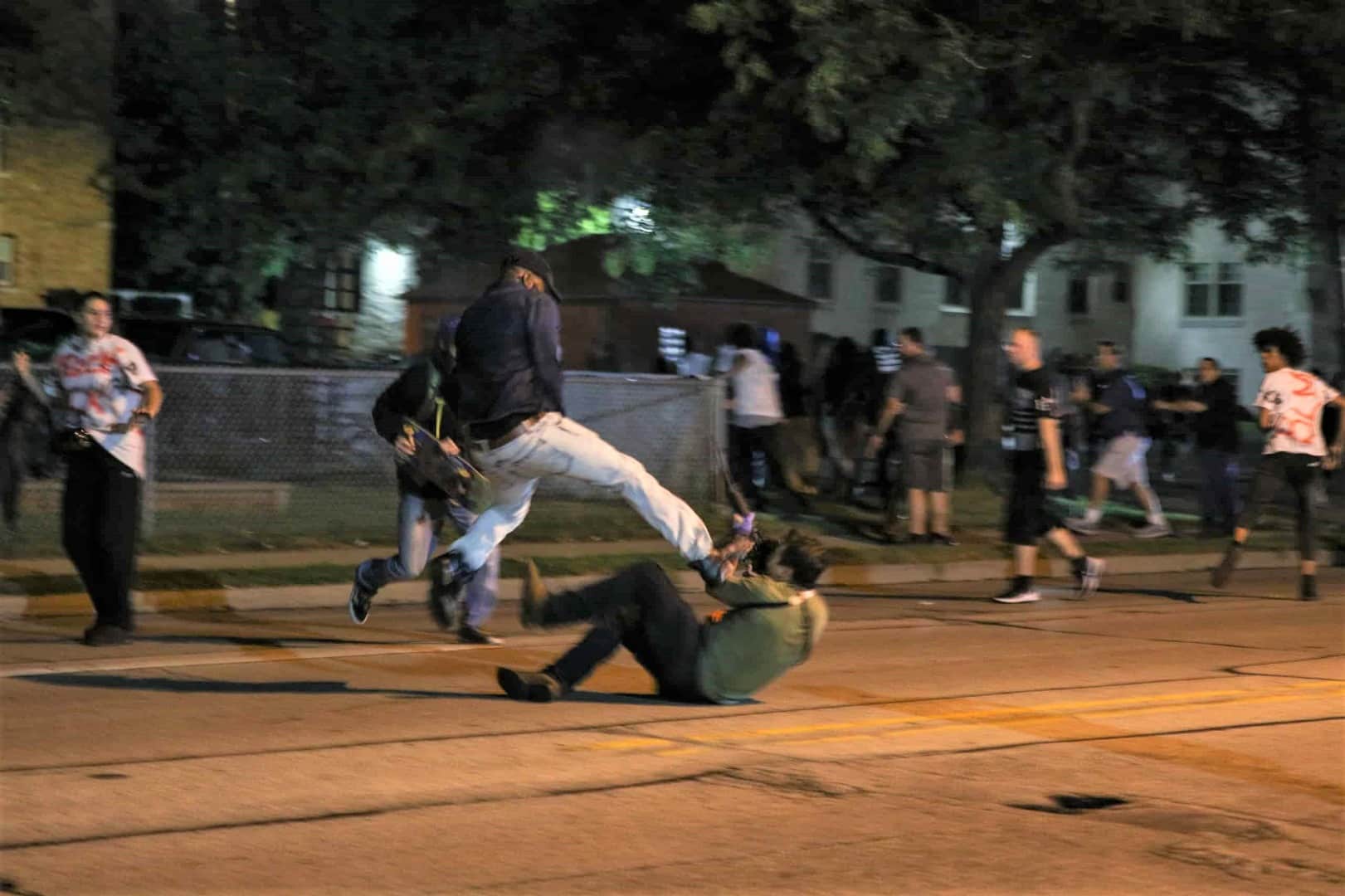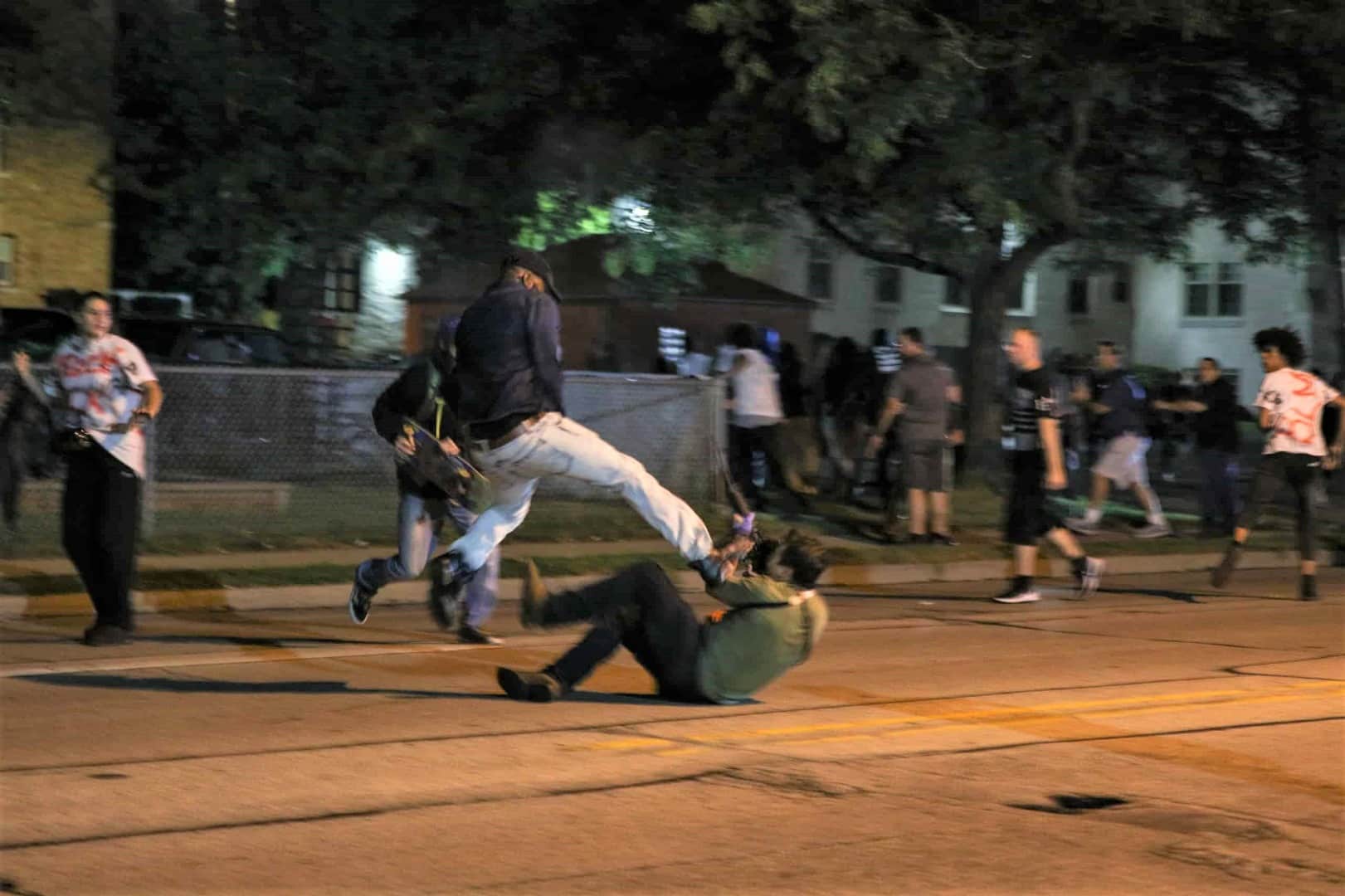Sgt. William Kelly, the second highest-ranking official in the Norfolk Police Department’s internal affairs division, has been fired for making an anonymous donation to the defense fund for Kyle Rittenhouse. The donation (revealed after a security breach of the Christian crowdfunding site GiveSendGo was accompanied by a note saying that Rittenhouse did “nothing wrong.” Despite the obvious attack on free speech and associational rights, there has been little concern raised in the media or by legal experts. Two days ago, a reporter in Utah went to the home of a paramedic to confront him on why he made a $10 donation of Rittenhouse, who is accused of killing two people during violent protests last summer in Wisconsin.
Kelly is an 18-year veteran of the department. He made an anonymous donation and was not publicly speaking as an officer. He included a note “God bless. Thank you for your courage. Keep your head up. You’ve done nothing wrong.”
Norfolk City Manager Chip Filer said in a statement that Police Chief Larry Boon agreed the officer violated city and departmental policies against “egregious comments.”
Section 5.1 of the Norfolk Police Manual prohibits any conduct or comments, including off-duty, that would produce a “loss of respect” for the department or bring it into “disrespect.” It is the type of ambiguous standard that is anathema to free speech and associational rights.
Not only was Kelly fired, but Filer and Boon carried out the action in just 72 hours — leaving little time for a defense or full investigation.
If this was an anonymous contribution, it is hard to see how it violates any rule on public commentary. Reports indicate that Kelly was the victim of a security breach. It is also notable that Rittenhouse has not been found guilty and is entitled to a presumption of innocence. Rittenhouse insists that he was acting in self-defense after he was attacked. That is obviously a highly contested defense that has divided many. It is ultimately a matter for the court and the jury to decide.
Police officers (and paramedics) should be able to make donations to legal funds without being harassed by the media or fired by their departments. The fact that Kelly added a message anonymously to a legal defense fund does not implicate his department or fellow officers. If the account of the breach is true, the comment was not intended to be made public. It would amount to the firing of an officer over a communication intended to be non-public — the same status as a private communication. The question is whether the department would fire an officer who made such a remark privately in an email to friends that was later hacked.
In my view, the case raises very serious concerns over free speech and associational rights. The Utah case is particularly chilling as the media attempts to embarrass or harass public employees who donate to controversial causes or legal defense funds.
At a minimum, the department should have allowed for a reasonable period of investigation and consideration of these issues before terminating Kelly. Putting aside his 18 years of public service, Kelly remains a citizen with basic rights accorded to him under the First Amendment.
Reprinted with permission from JonathanTurley.org.


